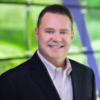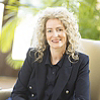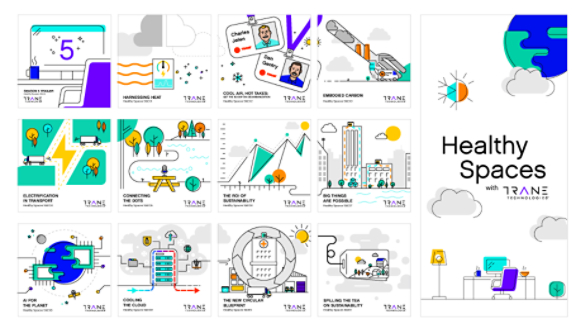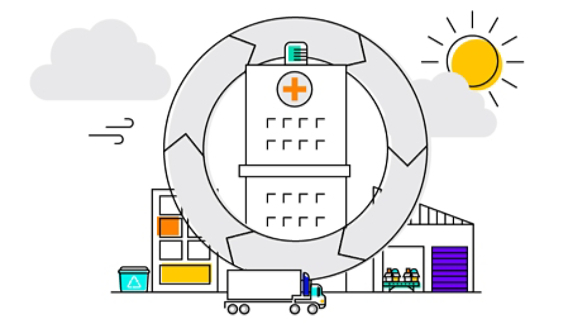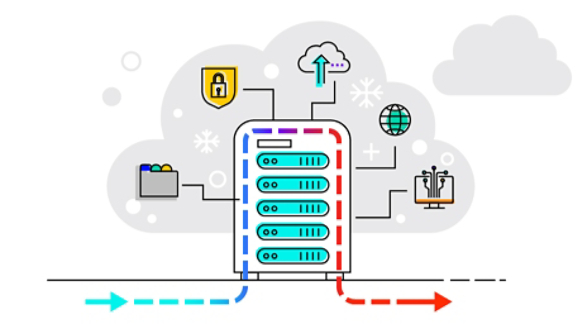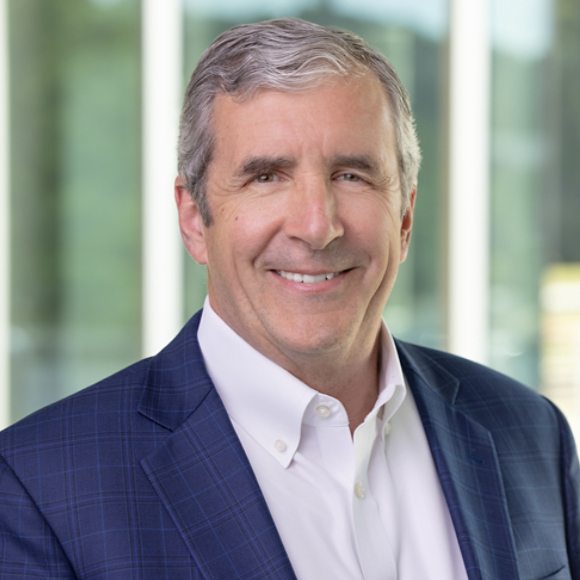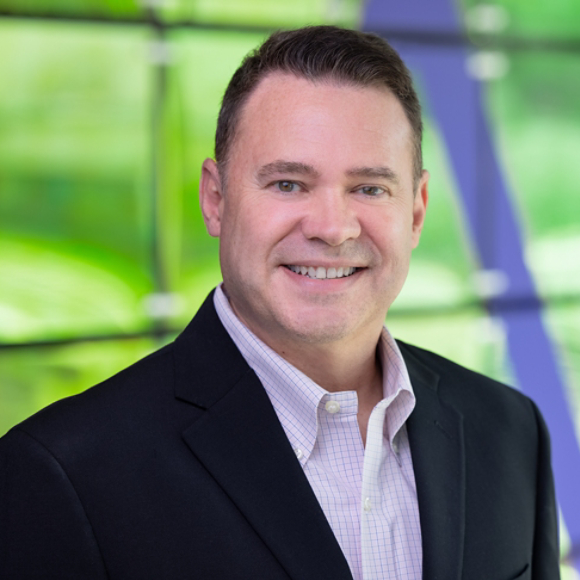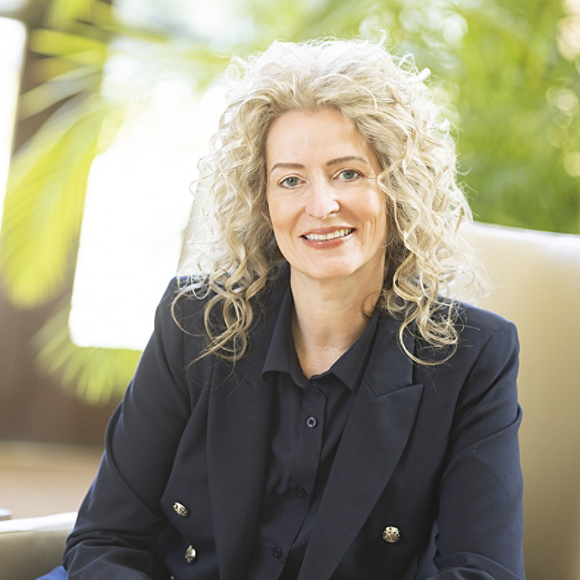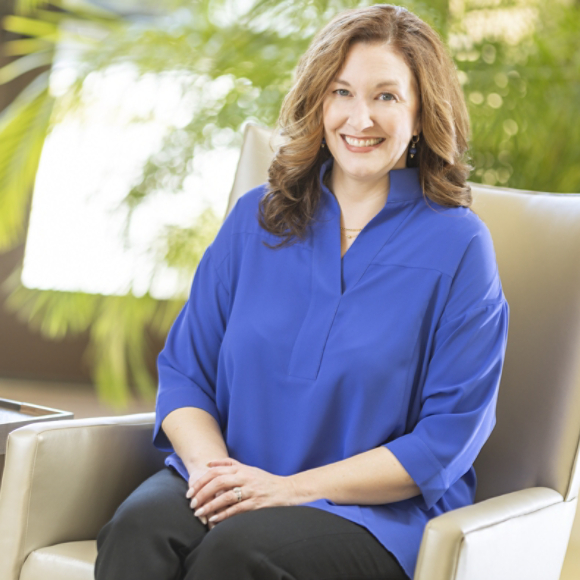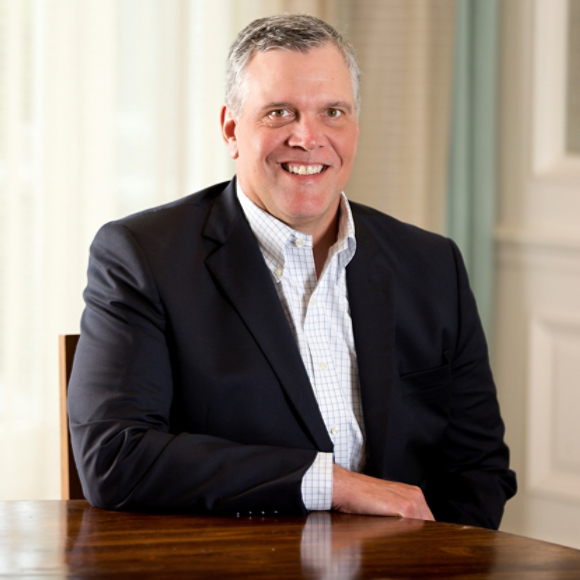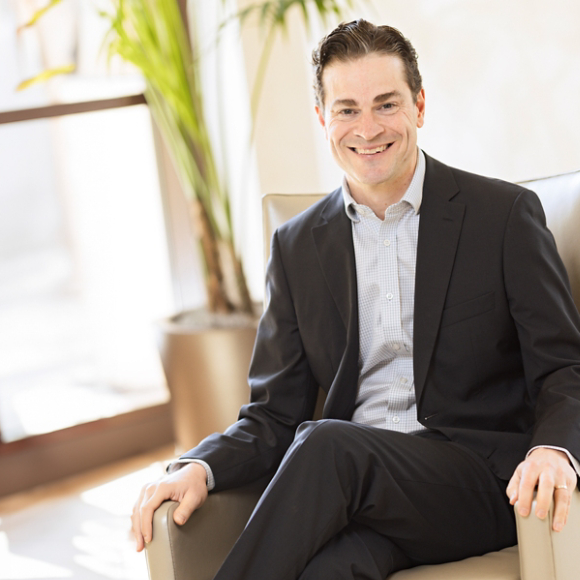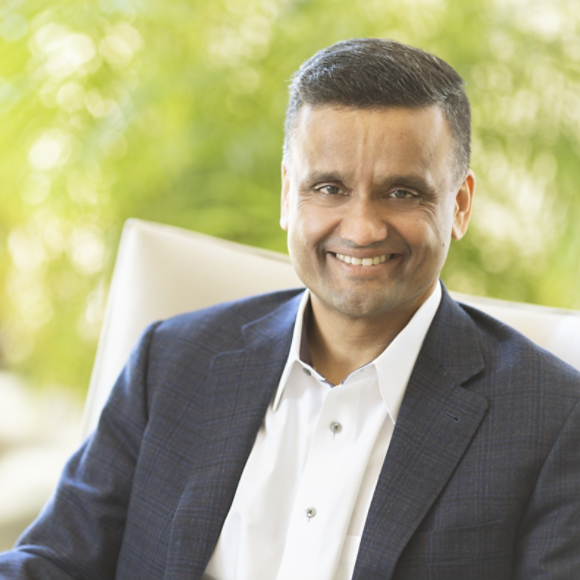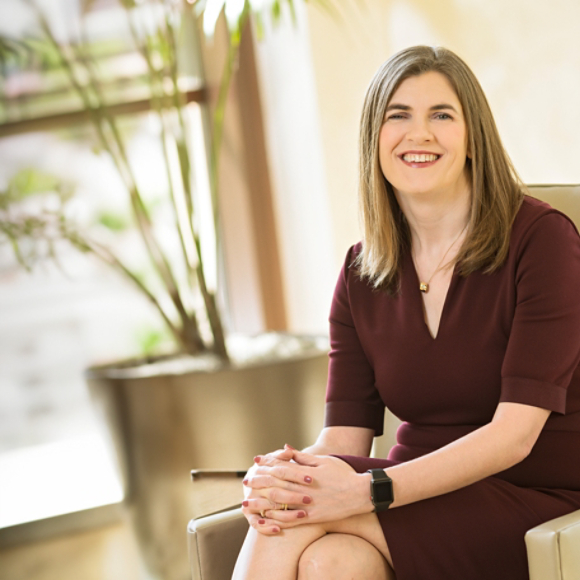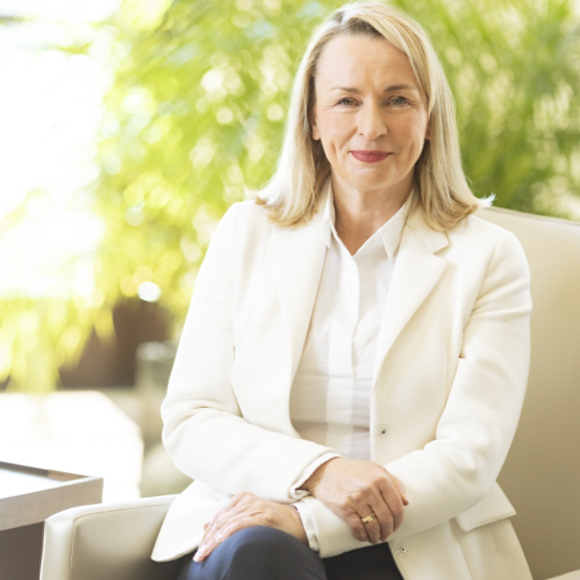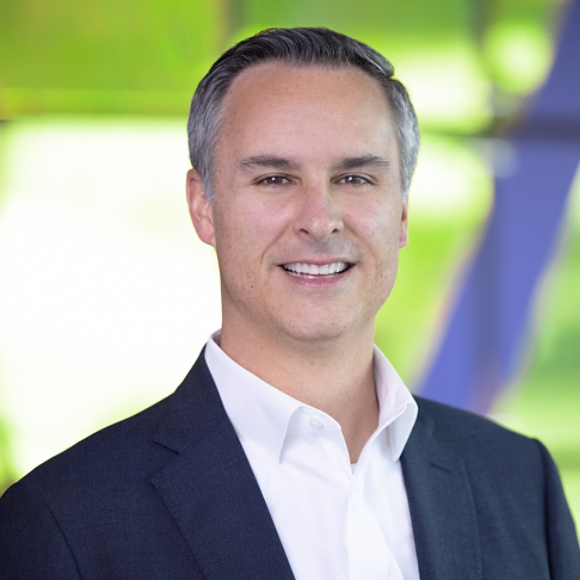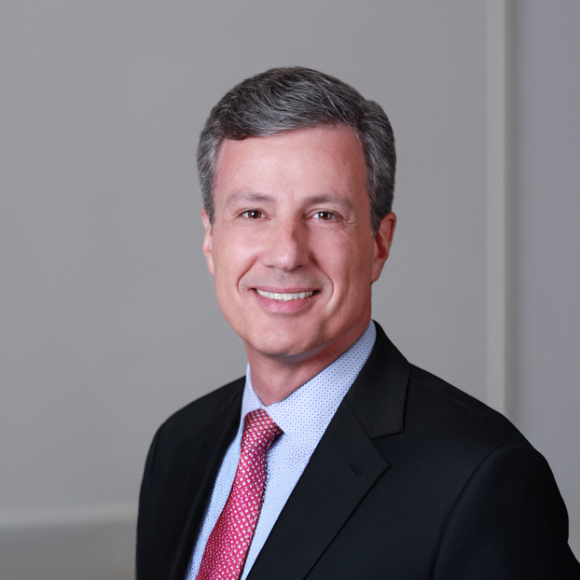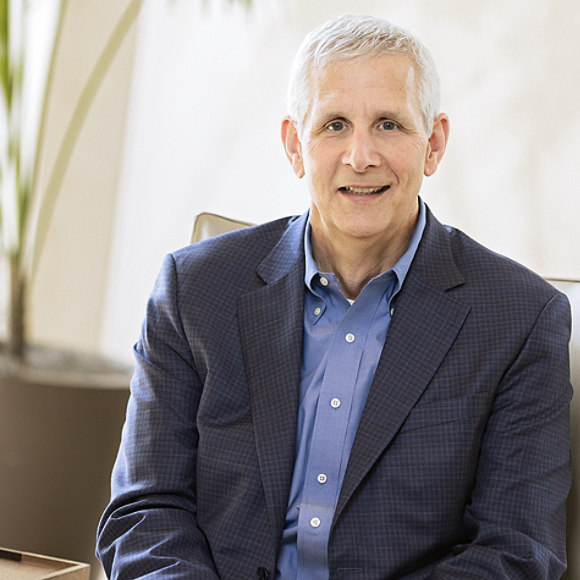November 11, 2025
Spilling the Tea: Inside the Conversations Powering Decarbonization
Season 5 Episode 11: Join us for an inspiring conversation about how sustainability is driving growth and impact across industries.
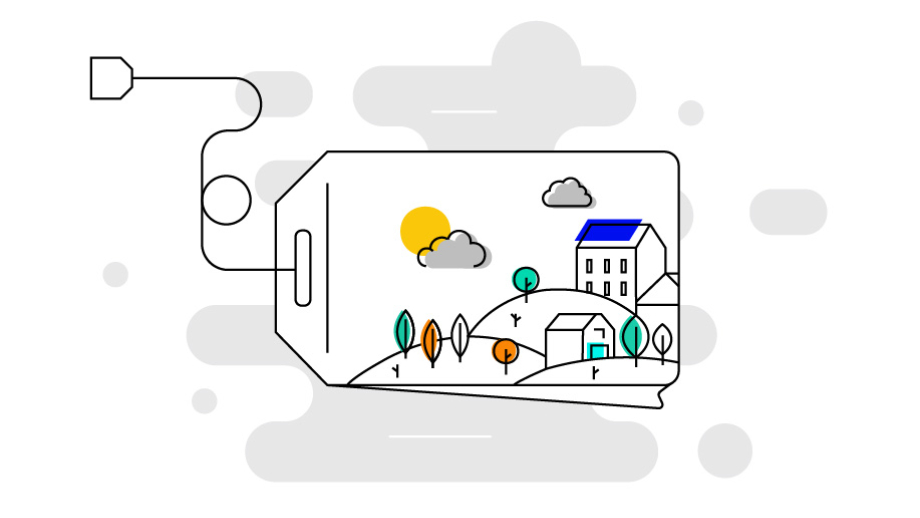
At Climate Week NYC 2025, the message was clear: progress on sustainability happens when industries come together. From data to construction to commercial real estate, collaboration and innovation are turning ambition into action.
Dishing on decarbonization
In this special episode, recorded live at Trane Technologies’ “Spilling the Tea” panel discussion during Climate Week NYC, we sit down with three leaders driving real change: Holly Paeper, President, Commercial HVAC Americas at Trane Technologies; Julia Gisewite, Chief Sustainability Officer at Turner Construction Company; and Suzanne Fallender, Vice President of Global Impact & Sustainability at Prologis.
They share how their organizations are accelerating decarbonization across the built environment - from low-carbon materials and circular energy systems to data-driven decision-making and community impact. Together, they reveal why the future of sustainable business depends on shared goals, transparent collaboration and a willingness to rethink what growth really means.
- Hey, Dominique.
- Scott, hold on. I thought season five of "Healthy Spaces" was over.
- Well, it was, but I couldn't resist taking this show on the road. This time, straight to Climate Week, New York City.
- Ah, Climate Week. It's basically our World Cup that one week when business leaders and sustainability disruptors all head to New York for panels, presentations, and deep dives into the future of our planet.
- Yep, it's totally my kind of party, Dominique. But before we get into that, a little heads up. This episode will drop while I'm actually in Belem, Brazil for COP30, the conference of the parties meeting on climate change.
- Wow. Look at you. And by the way, Scott, just a side note, right. So my 2026 agenda is totally open in case you're looking for a travel buddy or an assistant or anyone to help you at all of these amazing international sustainability.
- Okay, well thanks for that.
- Just putting it out there.
- I do need your help right now, actually, because the theme of this year's COP is a mutirão. Am I saying that right?
- Almost. Mutirão. It's actually a Portuguese word and it means a collective effort. It's like people coming together to achieve a common goal.
- Well, that's a great theme and what could fit better. And this whole season has been about collaboration and collective action.
- Exactly, so tell me, how was Climate Week?
- Climate Week was incredible. Trane Technologies was delighted to be the Climate group's headline partner for Climate Week, New York City in 2025. And our team participated in more than 40 events throughout the week.
- Wow.
- Including hosting, "Spilling the Tea on Sustainability." Was a collection of hot topic conversations with real change makers, plus a little high tea at Bergdorf Goodman.
- Ooh, sounds fancy. So who was on this panel?
- So we had Pro Lodges, Turner Construction, and of course, Trane Technologies. It was big ideas, was real impact and lots of inspiration for the future.
- Okay, well let's dive in, but shouldn't we do the thing first? You know, the, "You are listening to," you know, Scott, you know the drill.
- I think the audience knows it by now, but okay. You are listening to "Healthy Spaces," the podcast where experts and disruptors explore how climate, technology, and innovation are transforming the spaces where we live, work, learn, and play. I'm Scott Tew, sustainability leader here at Trane Technologies.
- And I'm Dominique Silva, marketing leader at Trane Technologies. And okay, now I feel better. Now we can go.
- Alright, so the panel kicked off with sharing the exciting new sustainability developments across several industries. Here's Julia Gisewhite, Chief Sustainability Officer at Turner Construction.
- I'll say the way we think about innovation at Turner is, and I'm probably going to get some head nods I imagine, but not doing the innovation for the sake of innovation. So having a support strategic direction. What we're doing around sustainability innovation, climate innovation is number one, pilots. So demonstrating scale opportunities for low carbon, in particular, solutions and tech on our sites. So we are deploying low carbon materials, concrete steel, testing them just to test their viability on jobs. We're also looking at new approaches, new methodology to deconstruct and demolish buildings, construction business, we have a big waste problem. So thinking of how we're more intentional about the way we take buildings apart, it's a more white glove approach that requires a different type of planning, a different type of procurement. And then that kind of follow the thread. How are we putting buildings together is a different way of thinking about things. So thinking about the full building lifecycle, maybe you classify this as innovation, maybe not, but we're really intentional about industry collaboration and lending expertise where we are thinking about how to scale. And so particularly for us thinking about supply chain, so connecting the dots on supply chain and helping solve for that like, as you know, in the context of getting low carbon cement into, you know, from factory into specs and into finally poured into place. So kind of connecting those dots and connecting players along the way.
- Suzanne Fallender, who's the vice president of Global Impact and Sustainability at Prologis.
- So when we think about first the kind of collaboration in terms of how we are thinking about innovating for our existing portfolio and our operations, we're doing a lot of partnership with customers of thinking like how can we use data to really model out when we should do different kinds of improvements to the building when we should replace HVAC systems with more, you know, energy efficient models. We're actually doing a nice pilot with Trane on Department of Energy heat pump program. So really thinking about how do you start modeling these things out so you can scale them quickly to move forward. Very exciting around, I spend a lot of time as well as you do on sustainable materials, like more sustainable concrete, steel, mass timber projects. One good example is we just joined the Sustainable Concrete Buyers Coalition with RMI and GMA, other big partners in there, Amazon and Meta. And that will really help us to kind of scale the purchasing and move that forward. We also partner with MIT on their coalition and you know, a really good example recently we have a new building that was just completed in Brampton, Ontario that is fully mass timber. And that really helps us to kind of have those models working with our development teams where they can test different materials in different projects. We also are very fortunate to have a ventures arm as well. We started our Prologis Ventures group in 2016. We've invested 270,000,050 early and growth stage startups and over the last few years they've been great partners. That team in really looking at the sustainability side of things. So thinking about how do you work together, how do you get out ahead of those next technologies? Because some things we could do today in pilot and prove them out. And then other things, you're going to have to do those longer term kind of investments in research, in partnerships, and investment.
- Holly Paeper, president of Commercial HVAC Americas at Trane Technologies.
- So Trane technologies, we have our gigaton challenge, which is essentially reducing the carbon emissions by 1 billion metric tons by 2030. And it drives everything that we do. The way that we do that and the way that we get there is largely also about enabling our customers. And so that happens to be building owners in my world. And so we spend a lot of time, you know, thinking and talking about innovation. And so I'm going to talk actually about the people innovation side and you know, in our business we happen to have thousands and thousands of service technicians, HVAC service technicians, that help renew equipment that help make sure building operations are working and going. And without that your systems degrade and become less efficient. And so people are driving and powering that sustainability but that also happens to be an area where there is a shortage of resources, right? These are scarce resources. So we've done a lot of innovation around how we both bring in new people to the field. So we've got a technician apprentice program, for instance, how we re-look at hiring all skills and there's a skills-based hiring approach that we have where we focus less on degree requirements and more on what are the skills needed and that's even more important tomorrow than it is today with a artificial intelligence augmenting work and the intersection of product innovation and people innovation is really how we're thinking about building artificial intelligence. What we've created now is an AI specific solution that is obsessed with HVAC. And so with this innovation, suddenly instead of having an operator decide, you know, what should a thermostat be and how can I adjust my script or code here, now you've got artificial intelligence in a realtime way, adjusting what's happening in the building and as a result, driving efficiency of 30%, 40% in terms of buildings and how efficient they can be. So now you've got all of these trained technicians, you've got technology and suddenly the role that you have and the role that your technicians play in how to intervene versus when the building can self-heal or self-correct. And so we've been focusing a lot on the innovation and the intersection of those two things to accelerate the progress and accelerate the efficiency that buildings have.
- Low carbon construction, smarter materials, heat pumps, AI powered buildings. I mean, wow. What I'm hearing there, Scott, is that these leaders are all really redefining what innovation looks like.
- Yeah, I mean you're totally right. It's not any longer about big ideas. Now it's about real impact. Cutting emissions, boosting efficiency, and finding smart ways to save costs along the way.
- Exactly. And that same mindset drives what we do, right? On the one hand, we're developing solutions that can help decarbonize buildings and transport, which is where change matters most. But on the other, we're also proving an important point and that is that sustainability and operational excellence can and should go hand in hand.
- Ah, I can tell that you've re-listened to my episode with Chris Kuehn about the ROI sustainability, but we know that technology alone is not enough. The real transformation always happens when innovation meets the power of people. So let's head back to our panel to hear their thoughts on community driven impact.
- From a community standpoint for us there's a couple of ways that we think about this. I think first and foremost we have, you know, part of our definition of sustainability is really around community and our idea of sustainable futures and you know, the way that we empower our employees, the way that we partner in the community. And so if we've got paid volunteerism for every employee and you know, we've got actually global weeks of service where we're encouraging our teams to go and do things in the communities, right? Certainly pointed at things like STEM and areas that we believe in as a company. We've got, you know, Trane Technologies foundation, right? Where we direct funds to to similar kinds of things. So we have a lot of what I would call grassroots activity. So there's a lot of things that are happening around that. I think on the other side of this, there's a technology play here as well and it's really, I think about the data center world, right? I mean we've got all this technology that's starting to emerge and we see a lot of headlines and we read a lot of headlines around, you know, taking from the power, taking from water. And you know, I think the other side of this is these are also just a building a potential resource of free energy and a potential way to give back to the community. So right, we think, instead of thinking about the heat a data center generates or the power it uses, it's how can it potentially provide heating to apartment buildings or the districts around it. And so we're starting to see a lot of really interesting innovation happen there. So as we think about community, I think there's ways around connecting dots between different stakeholders in addition to what we can do as a company in terms of both giving back on the ground and then in broader ways,
- Very similarly we really try to align our community impact and social impact strategies with our business and where we can uniquely really help the communities where we're operating. And so we have three kind of main pillars as well. Really in an environment, community and skills, economic development. The first thing that kind of cuts across all those three things is similar to you. We really try to empower our employees to give back. So we have a global impact day where we close all of our offices and everyone volunteers as teams together and then an additional 32 hours of paid volunteer hours on top of that. And the environmental space, we really look around tying it to our energy business. So as part of our net zero goal, we have a goal to get to one gigawatt of solar by the end of this year. We're a little over 800 megawatts now, so we're on track. But that whole bringing in all that expertise for renewable energy, we've now been doing a number of community solar projects on top of what our customers need. When you think of a distribution center, think of a very large roof. Today, most of our customers, when they're looking for solar, they don't need the whole roof for the energy they're going to need. So we're able to use the other part of the roof for these projects. And so we've got projects across the US and in Europe, a really nice one here in New Jersey, which is 4.6 megawatts, which is helping 400 households get discounted energy of 25%, which really is a way we can kind of give back there. The other kind of pillar that we really focus on is we have space. And so sometimes when we have free space, we can then either donate that space or give discounted space to nonprofits in the community, especially around disaster relief. So when the LA fires happened, we were able to work with Habitat for Humanity, get them space in LA to stage recovery efforts. And then the third on the skills, very similar to you on looking at and as well as yours on the training, we've been really working with how do we think about what skills are going to be needed for our customers in the future. So we launched a program called the Community Workforce Initiative. And that program we work with local nonprofits and workforce development groups in the US and Mexico City as well as Europe to help train people for logistics jobs. So we've trained 36,000 people in the last several years and continue to evolve that program to add things like AI skills in some of the programs as well.
- One of the core aspects of Turner culture is this concept of active caring. This does mean how are we taking care of your neighbor? How are we taking care of our clients, our workers? And how are we allowing people to come to work at their best every day, be themselves, be their true selves. When you think about the effects of climate change that are already in motion, heat is a really dangerous one. And construction workers are especially susceptible to heat stress because of the working conditions in which they see every day with heavy labor, they're wearing, you know, heavy physical labor or protective gear, you know, limited shade and then work hours that can be also very stressful. We have a hundred thousand workers on our sites every single day. So one of the things that we initiated two or three years ago, we did a heat stress study on construction workers where we had namely roofers and iron workers participate. We monitored throughout the day. We were watching the physiological changes of what happened on hot summer days and what happened to their body throughout the course of a construction day. We partnered with academic partners, nonprofit partners, insurance partners. Because when you think about the workers' comp and the insurance claims related to all of these health issues, it's significant. And we wanted to understand the impacts of rising temperatures on our workforce, which we think is a great demonstration of active caring, collected data over the course of weeks on multiple projects. And then we also tested various interventions. What was the effectiveness of interventions like cooling stations, you know, modified work schedules, what worked, what didn't. And I just think one of the neatest findings that came out of that study was we found that 82% of workers coming to our sites showed up dehydrated in the first place. So when you think about, which sounds small and not like a, you know, a breakthrough finding, but when you think about how we can be proactive and mitigate some of these impacts of the climate hazards that we are facing or will be facing, there are absolutely behavioral interventions, technological interventions that can help. So that is one way of one of our key stakeholders, our workers, we think about taking care and protecting and actively caring for them.
- Scott, it is so inspiring to hear how each of these companies is making sustainability personal because, and you know how I feel about this. Climate action isn't just about technology, it's about people. It's about creating healthier spaces and empowering communities to shape their own sustainable futures.
- Yeah, I totally agree. And in that same spirit of collectivity, we wanted to hear from the community at Climate Week what's inspiring them and what's got them most excited about the future. And here's what they had to say.
- My name's Ethan, I'm with Cyclic Materials. Cyclic Materials is creating a circular supply chain for rare earth elements. The key thing for rare earth elements is that they help us create energy efficient technologies. But due to supply constraints, one of the great things we can do is to not only be more sustainable, but to also be more secure is to create a circular economy for them. So our technology has special abilities to recover these rare earths from end of life and return them to the supply chain. This will really unlock a lot of electrical green technologies. Because we'll be able to build more energy efficient motors and we'll also be able to mine less, which is a big boost. Today we have a commercial administration facility is up and running for two years now, and at the start of next year we'll have a couple full scale facilities up and running.
- My name is Raagan Wilhelm. I am senior manager for energy optimization with Ceres, which is a sustainability nonprofit out of Boston that works collaboratively with businesses to reach their sustainability goals, both internally and with public policy makers. Working at Ceres, we work closely with businesses that have made sustainability goals and it is a joy to work with companies like Trane Technologies through my energy optimization working group, which is mostly appliance manufacturers and energy service providers. We make real change kind of in the nitty gritty of the policy aspect. We provide business advice and expertise on regulatory proceedings related to key clean heat planning and future of gas. We provide testimony on building codes, performance standards, and energy efficiency programs. So we get really into the details on how we can bring industry expertise into policy planning.
- I'm Ryann Busillo and I am a dual master's degree student at Columbia University. I am right now at the climate school getting my masters in climate science. And next year I'll be at the Earth and Environmental Engineering School. Getting my masters in carbon management. I've honestly always been attracted to nature. I think for me it started with my pet dog and I grew up in the city so as you can see, there's not a whole lot of green space. But always missing that and not having that, I think made me want to protect it even more and find ways to integrate it into urban environments. This is my first time at one of these newbie summits and I am honestly taken aback by just the diversity of presenters. And I feel like it's really touching on almost every aspect of climate. Like when you think about climate change, you can't just expect or think that you're going to go in and make this one change or you're going to scale this one solution and that's going to be the answer. It's a bunch of little things. It's a bunch of big things. It's a ton of interdisciplinary work and I think that this event is really capturing that.
- My name is Michelle Li. I am the founder of Clever Carbon and the co-founder of Women and Climate. We teach people about carbon footprint at Clever Carbon. So my carbon footprint is 23.1 tons annually. In Canada, which is where I live, the average is around 14. The US average is around 17. Vietnam average is around 2.2. The UK is around 7.7. I think the impact is really just understanding, oh, like I didn't know I had a carbon footprint. And two, why is mine different from other people or the country's average? And getting people carbon curious because what gets measured gets changed.
- Wow, you can definitely feel the energy at Climate Week.
- Well a special thanks goes to our roaming reporter, Sarah, for capturing those incredible voices. And now the final topic of the day is something that, you know, Dominique, that I love talking about.
- Okay, let me guess, is it the ROI of sustainability?
- Yay, first guess was the right guess you got it.
- Oh, yeah.
- Let's go back to our panel to hear their view on entering new markets and scaling sustainably.
- I think where my head was going as you were talking here was just back to this example of, or this idea of energy circularity, right? So we think about circularity a lot of times in terms of what I would call micro circularity in a product, you know, and then you start to move towards macro once you talk to about a system or a building. But there's something broader there around community and the ecosystem here. And you know, one of the things that I think we find to be most fascinating is the fact that, you know, any individual building can be an individual consumer of energy. But now if you zoom out and say, "Okay, wait a second, there's a ecosystem here and then there's a free energy component to that." How can the broader ecosystem right across partnerships and across collaboration really be thinking differently about not only net giving back, but making things net neutral. And so let me give you some examples there. We've now worked with data center customers who had waste heat and figured out a way to connect that into maybe a daycare or a residential building to be able to use that heat. And so it's, you know, the interesting thing there is that it really, there's a good financial decision for a building owner or you know, one of the players in the ecosystem, but there's a broader sustainability play, right? Once you start connecting all of these dots. And so I think, you know, the way that I and we are thinking about sustainability is not only, you know, solving within the stuff we happen to make or the systems we happen to design, but generally speaking, how we're connecting with all these other stakeholders to make it net good for a broader context. And I think we find the more that we zoom out in that discussion, the more opportunity there is. And so as we think about growth and the future, it's really more than just what we can do within our four walls or what a building owner can do within the four walls of that building. But instead, you know, this bigger discussion. And as technology evolves and more solutions become available, I think it becomes more complicated, right? And it requires more collaboration. And I think that's something that's going to need to continue to be really important in terms of how we all solve this.
- Just for a little context, we've been very, very fortunate. Turner has seen some significant growth, very significant growth in the last three years. Our revenue is up 38% in three years. Our headcount is up 40%, our backlog is up 68%. So when you think about trying to manage emissions against those curves, it's very, very challenging. And I'll say the sustainability has not, it's not static. The technologies are changing very quickly. Science is evolving. The regulatory and market expectations are changing. So one of the things for me and my team as leaders of this, of sustainability in the companies, but how do we stay flexible enough to be able to deliver? And I think the two things that stand out to me are, again, keeping our people at the forefront. We talked about that throughout the panel and keeping them educated, keeping them upskilled, keeping them at the front line so they can be the best partners for our clients and for our supply chain. And I just want to say that is something that in the last couple of years we've really leaned in with supply chain because we don't get where we're going if our supply chain doesn't come with us on this journey, how do we bring our, not just our largest subcontractors and suppliers, not just the Tranes of the world, but the mid-size and smaller hyper-local companies along with us on this journey. Because we're like every other company in this room. We're 95% of our footprint is our scope three. So our answer, I think to the future proofing question is in supply chain and how we use our influence and our ability to touch so many companies in a very, very wide and deep, construction has one of the deepest and widest supply chains of any sector. How are we intentionally reaching out and bringing them on this journey?
- As I think about going forward, three things that come to mind for me that are going to be continued focus areas. One is, you know, continued integration. Second is the role of data. And I think third is really just thinking about how this helps with market differentiation. And what I think about the integration. I think about it two ways. The increased focus on data and analytics, deepening those skills, deepening kind of the strategic alignment, being able to really lead, change across the organization, be able to speak the language of many different teams, but also the partnership with the leaders in these other core functions has been critical. So spending all the time with the head of accounting and spending time with, you know, the heads of real estate in the different markets like that, really having them be the advocates for this work or the head of our development teams. That's really, I think what has been changing the conversation, but also I think what will be critical to scaling this going forward. Data, very lucky to have a great CTO who has been an advocate for this, has put resources to really think about how to automate it, make all of our buildings and all of our systems smarter. And that really is what enables that market differentiation. Because we can have the conversations with the customers, with real data, with really helping to visualize what good looks like and how do we move that forward. And we haven't talked a lot about investors, but I spend a lot of time with investors on this. And I think with all the market changes and spilling the tea we're still seeing a lot of demand from investors and their questions are getting more sophisticated, their data demands as they're trying to model all this out for them. So it comes down to that integration, that data-driven decisions, but really thinking about how does it help you grow your business over time and just be that partner of choice for customers and and for investors.
- I love how that conversation wrapped up, Scott, because I say it all the time, sustainability is a team sport. Think collaboration, not competition. And it's amazing to hear that early movers aren't keeping their breakthroughs to themselves. They're sharing technologies, playbooks, and data so that others can follow faster.
- Well that's going to be a huge topic at COP32. I mean, collaboration's vital. We need partnerships that go across all sectors and across all borders, governments, NGOs, businesses, all pulling in the same direction on climate.
- I'm all about that collective action. But Scott, and this is said with no jealousy. You were in New York City all week. So what were your big takeaways?
- Oh, well Dominique, there were three things that stood out for me. One was that sustainability is now strategy. It's not a side project anymore. I mean this is how smart businesses actually operate. The ROI once again is real, lower energy, cost better efficiencies, stronger more resilient operations, engaged people, as our CEO Dave Regnery likes to say, "Just because it's sustainable doesn't mean it has to cost more." Secondly, we need to count what really counts. I mean, this came across in so many ways during Climate Week. Traditional ROI models miss the full value of decarbonization when you factor in resilience, risk reduction, brand trust, even talent attraction, sustainability moves from nice to have to must do. And thirdly, progress over perfection. I mean this message always was really simple. Just keep moving. Take action with what works, measure it, share the results with everyone. Celebrate your wins in particular, learn from the setbacks but keep things moving.
- I love it. Just keep the momentum going. I couldn't think of a better way to end this series of "Healthy Spaces."
- I couldn't agree more. Let me give a big thank you to everyone that has tuned into the podcast this season. We're so glad to have had you in this journey with us.
- And we also want to say thank you to our guests. The interviews this season have been incredible, inspiring, informational, and totally actionable.
- I agree, but I also need to thank you, Dominique.
- No, no, thank you, Scott.
- Okay, I guess we should probably start wrapping this one up.
- I hate goodbyes so I'm out, you can do the outro.
- Alright, well this has been the "Healthy Spaces" podcast with me, Scott Tew.
- Whoa, whoa, changed my mind. And me, Dominique Silva. So if you want to know more about the topics covered today, you'll find all the links in the show notes.
- We'll be off the air for a while. But if you want to stay in the frontline of innovation and sustainable growth, subscribe to the Temp Check newsletter on LinkedIn to stay in the loop.
- Thank you for joining, we'll see you soon.
Featured in this Episode:
Hosts:
-

Marketing Leader EMEA, Trane Technologies
-
Global Head and VP, Sustainability Strategy, Trane Technologies
Guests:
-
Vice President of Global Impact & Sustainability, Prologis
-
Chief Sustainability Officer, Turner Construction Company
-
President, Commercial HVAC Americas, Trane Technologies
About Healthy Spaces
Healthy Spaces is a podcast by Trane Technologies where experts and disruptors explore how climate technology and innovation are transforming the spaces where we live, work, learn and play.
This season, hosts Dominique Silva and Scott Tew bring a fresh batch of uplifting stories, featuring inspiring people who are overcoming challenges to drive positive change across multiple industries. We’ll discover how technology and AI can drive business growth, and help the planet breathe a little bit easier.
Listen and subscribe to Healthy Spaces on your favorite podcast platforms.
How are you making an impact? What sustainable innovation do you think will change the world?
Topic Tags

 English
English

